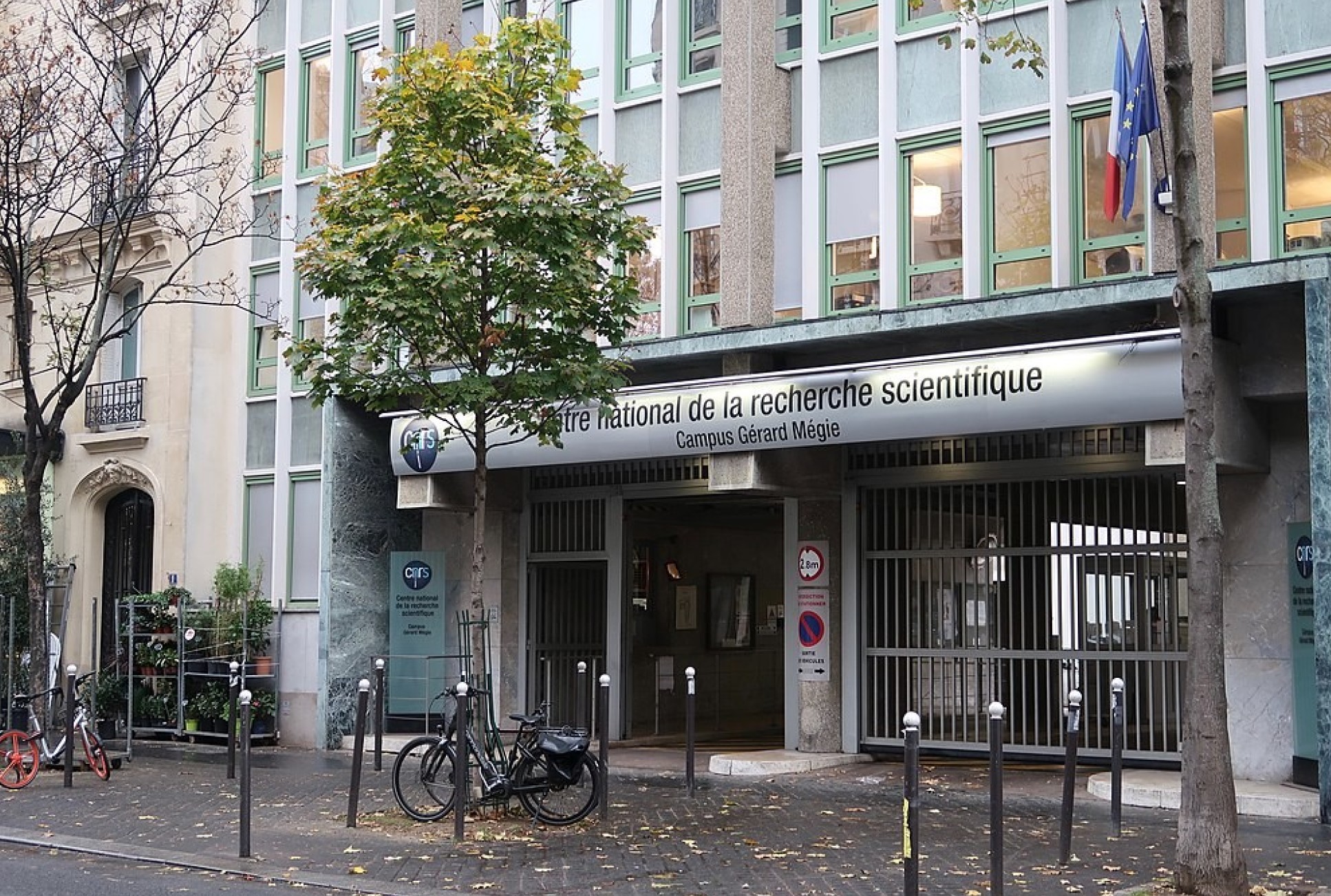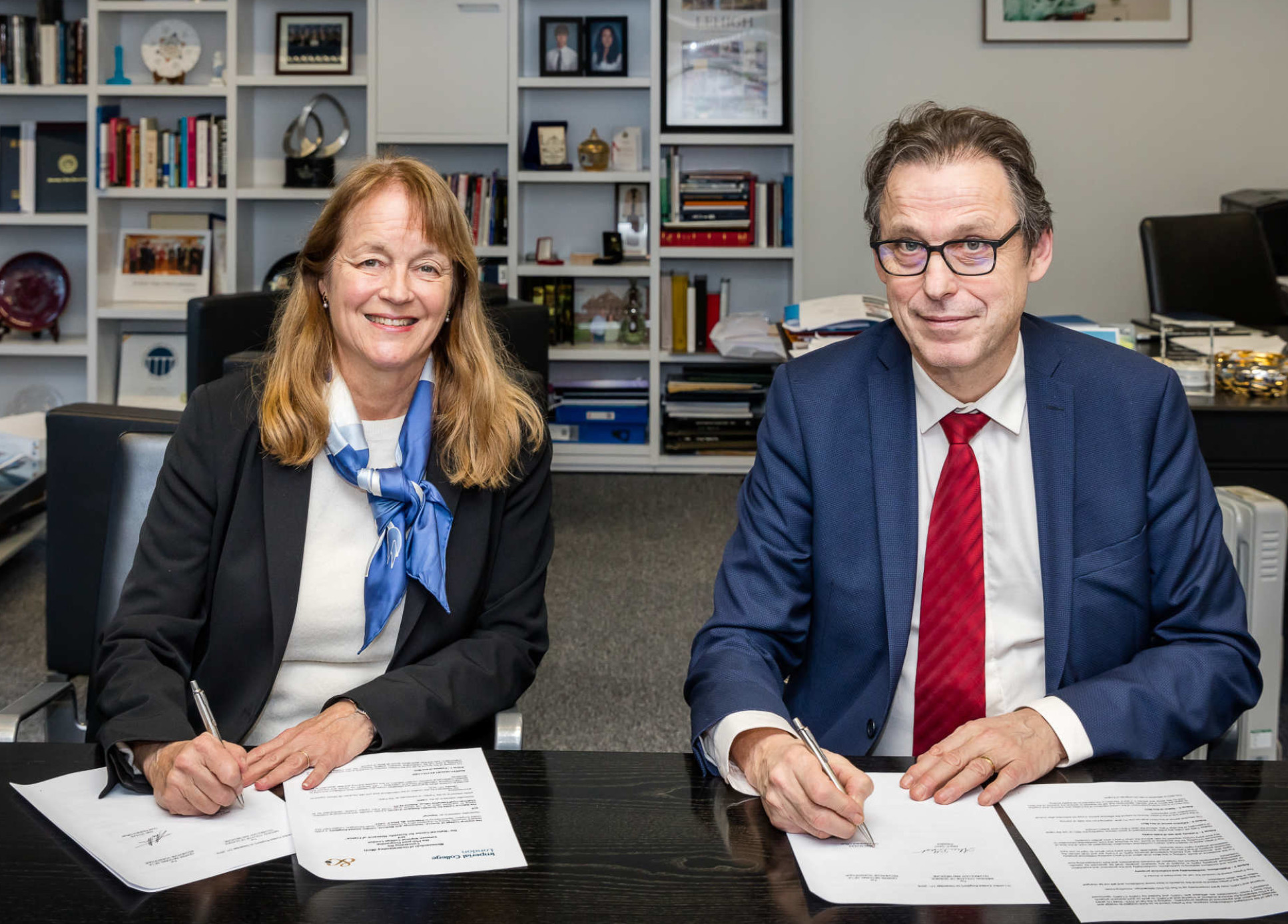New collaborative research projects to probe frontiers of science and technology

Imperial and France’s CNRS have announced six exciting new joint PhD projects, as two of Europe's scientific powerhouses forge ever closer ties.
Research topics range from the dynamics of pedestrian movement and human crowds to the geometry of spacetime in string theory.
The project builds on, and strengthens, the ongoing collaborative relationship between Imperial College London and the Centre national de la recherche scientifique (CNRS). The latest cohort of six joint PhD projects involves 12 PhD candidates (six at the CNRS and six at Imperial), and at least one Principal Investigator (PI) from each institution. It follows a first cohort of five Imperial-CNRS joint PhD projects, announced in Summer 2020.
Innovations for the benefit of society
International collaborations are absolutely vital in Imperial’s mission to bring forward new discoveries and innovations for the benefit of society. Professor Nick Jennings Vice-Provost (Research and Enterprise)
A central pillar of the partnership between the two institutions is the CNRS-Imperial "Abraham de Moivre" International Research Laboratory, which focuses on all domains of mathematics and of their interactions with physics, computer science, biology, economics, social sciences. Imperial is also the UK lead of the CNRS International Research Network (IRN) in Quantum Fields and Strings. In addition, the Imperial-CNRS Collaboration Fund recently awarded a total of £32,500 in seed investment distributed across six new projects.
Imperial's Vice Provost, Professor Nick Jennings, said: “International collaborations are absolutely vital in Imperial’s mission to bring forward new discoveries and innovations for the benefit of society. They enable the pooling of research capabilities, sharing of expertise and facilities, and crucially, the opportunity to appreciate different perspectives. The strategic, multi-faceted partnership with CNRS is a shining example of this activity and is starting to have a real and tangible impact – for example through a growing community of PhD students and seed funding to scale-up and accelerate scientific advances.
“The partnership with CNRS is also one of several ways in which Imperial has sought to grow its European links as the UK recalibrates relations with the European Union. Going forward there will be more opportunities for collaborative doctoral training with international colleagues, for example through Marie Sk?odowska-Curie Actions doctoral networks as part of Horizon Europe.”
Professor Alain Schuhl, CNRS's Chief Research Officer (Deputy Director General for Science), said: "International outreach is one of the pillars of the CNRS scientific strategy. The PhD joint programme is a recent tool we have developed to reinforce strategic partnerships with key international partners. It helps to develop new bilateral collaborations based on the funded doctoral fellows and the PIs working together on the joint projects. It also allows knowledge exchange between the teams of the respective institutions.
"Imperial is our privileged and unique partner in Europe for this type of programme. It testifies to the importance of our bilateral relations, the quality of our institutional dialogue and our reciprocal desire for a deep and lasting engagement. I also want to convey here how highly the CNRS values its partnership with British institutions and to express our unfailing commitment to furthering our bilateral cooperation."

A joined-up approach to research
The six joint research projects selected this year, with their respective supervisors from Imperial and CNRS, are:
- "Infrared Frequency Metrology" – Professor Michael Tarbutt (Department of Physics) and Professor Anne Amy-Klein (CNRS UMR7538)
- "Geometry, Dualities and The String Landscape" – Professor Daniel Waldram (Department of Physics) and Dr Mariana Grana (CNRS UMR3681)
- "Towards A Quantitative Mean Field Game Framework for Pedestrian Dynamics" – Dr Dante Kalise and Dr Nikolas Kantas (both in Department of Mathematics) and Professor Denis Ullmo (CNRS UMR8626)
- "Bayesian Nonparametrics For High-Dimensional Statistical Inference" – Dr Kolyan Ray (Department of Mathematics) and Professor Castillo Ismaël (CNRS UMR8001)
- "Rigidity And Thurston Theory In Complex Dynamics" – Professor Sebastian Van Strien (Department of Mathematics) and Professor Dierk Schleicher (CNRS UMR7373)
- "Achieving Switchable Molecular Devices Through Nanoscale Engineering Of Functional Substrates" – Professor Sandrine Heutz (Department of Materials) and Rosa Patrick (CNRS UMR5026)

Imperial’s Dr Dante Kalise from the Department of Mathematics explains the rationale behind the project he will co-supervise: “Pedestrians naturally optimise different objectives when moving, including reaching an exit in minimum time, avoiding collisions and aligning with the flow of a crowd, to name a few. Our project aims to unveil and quantify behavioural rules for pedestrians through the mathematics of game theory. For this, we will combine the use of human crowd motion data along with high-performance computing and optimisation to accurately emulate crowd behaviour. This is fundamental for example, in the design of smart buildings with layouts minimising congestion or in the optimisation of evacuation routes.”
Dr Kolyan Ray, also from the Department of Mathematics, commented on the project he will co-supervise: “We will investigate the mathematical properties of Bayesian algorithms in complex models, which have become commonplace in modern statistical applications. Bayesian methods constitute an attractive approach for many statistical problems, being especially popular for the important task of uncertainty quantification, for example in healthcare, economics and machine learning. We seek to understand in what situations such methods can be trusted to provide reliable inference and when they should not be.”
Professor Sandrine Heutz from the Department of Materials commented: “Our project will develop new approaches to control how molecules can act as ‘on and off’ switches, for example in information technology or energy conversion applications, using a range of triggers such as light or electrical/magnetic fields. Complementary expertise in molecule design and photomagnetism at Bordeaux with thin film growth and nanofabrication at Imperial (with collaborators at the London Centre for Nanotechnology), will enable both fundamental and practical advances.”
Scaling-up and accelerating advances
In addition to the joint PhD programme, the latest round of the CNRS-Imperial Collaboration Fund awarded a total of £32,500 across six projects to scale-up and accelerate advances in mathematical and data sciences. Proposals are encouraged to include an industry partner or industry engagement, or to involve PhD students and early career researchers.
The projects are:
- "Imperial-TUM-CNRS Network for Machine Learning in Population Genomics: integrating AI into the study of human genome variation" – Dr Matteo Fumagalli (Department of Life Sciences) and Flora Jay (CNRS)
- "Entropic semigeostrophic models of atmospheric dynamics" – Professor Colin Cotter (Department of Mathematics) and Professor Jean-David Benamou (CNRS)
- "Renormalization and rigidity of complex box mappings" – Professor Sebastian Van Strien (Department of Mathematics) and Professor Dierk Schleicher (CNRS)
- "Applying spatial models and methods to archaeological finds" – Dr Tim Evans and Professor Ray Rivers (Department of Physics) and Professor Fabrice Rossi (CNRS)
- "Analysis of the equations governing fluid turbulence" – Professor John Gibbon (Department of Mathematics) and Professor Dario Vincenzi (CNRS)
- "CNRS International Research Network on Quantum Fields and Strings" – Professor Daniel Waldram (Department of Physics) and Professor Boris Pioline (CNRS)
CNRS image credit: Celette, CC BY-SA 4.0, via Wikimedia Commons
Article text (excluding photos or graphics) © Imperial College London.
Photos and graphics subject to third party copyright used with permission or © Imperial College London.
Reporter
Andrew Czyzewski
Communications Division